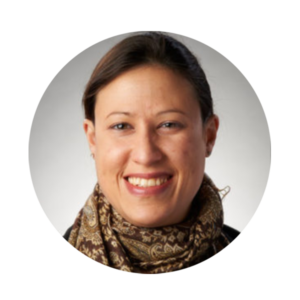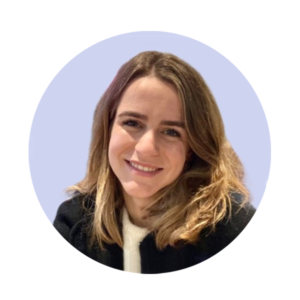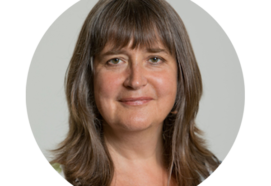For this session we welcomed Dr. Matti Cervin, Lund University, to discuss his JCPP paper ‘Technology-delivered cognitive-behavioral therapy for pediatric anxiety disorders: a meta-analysis of remission, posttreatment anxiety, and functioning‘. Open Access paper available
ACAMH Members link to paper once logged in
Authors: Matti Cervin, Tobias Lundgren
First published: 07 July 2021
About the paper
About the session
A panel, comprising paper author Dr. Matti Cervin, Lund University, and Associate Professor Dr Tobias Lundgren, Karolinska Institutet, independent expert Dr. Maria Loades, Senior Lecturer/Clinical Tutor, University of Bath and a lived experience perspective, will discuss the research and its implications with information scientist Douglas Badenoch. This discussion will be facilitated by Andre Tomlin (@Mental_Elf), and Elisavet Palaiolgou, KCL, will be co-ordinating the questions.
Resources
To get the most from the session we suggest reading;
Douglas Badenoch’s blog on the paper for The Mental Elf
The Open Access paper at https://doi.org/10.1111/jcpp.13485
Dr. Matti Cervin suggests “These two articles are about Internet-delivered CBT emanating from Sweden. The first is about treatment of social anxiety disorder in youth and the second is a non-inferiority trial of Internet-delivered CBT vs in-person CBT for pediatric OCD (although not anxiety disorders it is interesting because of the design).
- Therapist-Guided Internet-Delivered Cognitive Behavioral Therapy vs Internet-Delivered Supportive Therapy for Children and Adolescents With Social Anxiety Disorder: A Randomized Clinical Trial. Martina Nordh et al. July 2021
- Effect of an Internet-Delivered Stepped-Care Program vs In-Person Cognitive Behavioral Therapy on Obsessive-Compulsive Disorder Symptoms in Children and Adolescents. Kristina Aspvall et al. May 2021“
Elisavet Palaiologou suggests “IESO offers UK based online CBT, plus the website includes quite a few resources and blogs as well, which may also be of interest. Members from the lab that I’m part of EDIT Lab KCL have written the following blogs. If you are new to the topic they are ideal as they are a quick read and meant for the lay audiences.
- Internet Enabled Cognitive Behavioural Therapy
- C for Cognitive Behavioural Therapy (CBT)
- Cognitive behaviour therapy for adolescent body dysmorphic disorder: latest findings and future directions“
About #CAMHScampfire
ACAMH’s vision is to be ‘Sharing best evidence, improving practice’, to this end in December 2020 we launched ‘CAMHS around the Campfire’, a free virtual journal club, run in conjunction with André Tomlin. We use #CAMHScampfire on Twitter to amplify the discussion.
Each 1-hour meeting features a new piece of research, which we discuss in an informal journal club session. The focus is on critical appraisal of the research and implications for practice. Primarily targeted at CAMHS practitioners, and researchers, ‘CAMHS around the Campfire’ will be publicly accessible, free to attend, and relevant to a wider audience.
Previous sessions are listed in our Talks & Lectures section.
About the panel

I work as a senior clinical psychologist within the child and adolescent mental health services in Skåne. The overarching aim of my work as a clinician is to improve assessment of pediatric psychopathology and the treatment of pediatric OCD and anxiety disorders. I lead a training clinic in Lund where psychology students conduct supervised clinical work and are trained in evidence-based assessment and treatment of pediatric psychopathology. The main aim of my research is to better understand what causes and maintains psychopathology in children and adolescents. I have a special interest in pediatric OCD and anxiety disorders. I am also involved in research about chronic pain conditions and pediatric diabetes. I have ongoing research collaborations with research groups at Karolinska Insitutet, Stockholm, Uppsala University, Temple University, Pennsylvania, and Baylor College of Medicine, Houston. I also collaborate with researchers at the Department of Psychology and Pediatrics here at Lund University. (bio via Lund University image via Lions Research Foundation Skåne)

Dr. Maria Loades is a Senior Lecturer/Clinical Tutor for the Doctorate in Clinical Psychology programme at the University of Bath. She is a qualified Clinical Psychologist, working in a variety of mental health settings, including adult mental health, a children’s inpatient unit, and various community CAMHS. She has a post-graduate diploma in CBT for children, young people and families from the Anna Freud Centre/University College London, and a Postgraduate Certificate in the Supervision of Applied Psychology Practice at the University of Oxford. She secured an NIHR doctoral research fellowship in 2016 to further her research into depression in paediatric Chronic Fatigue Syndrome at the University of Bristol, and the Paediatric CFS team at the Royal United Hospital in Bath. Her research interests include: developing and delivering CBT for children and young people with depression, including those with chronic illnesses, therapist competence in delivering CBT, particularly in the field of child and adolescent mental health, and CBT supervision.
Follow on Twitter @MariaLoades

Andre Tomlin
André Tomlin is an Information Scientist with 20 years experience working in evidence-based healthcare. He’s worked in the NHS, for Oxford University and since 2002 as Managing Director of Minervation Ltd, a consultancy company who do clever digital stuff for charities, universities and the public sector. Most recently André has been the driving force behind the Mental Elf and the National Elf Service. The Mental Elf is a blogging platform that presents expert summaries of the latest reliable research and disseminates this evidence across social media. They have published thousands of blogs over the last 10 years, written by experts and discussed by patients, practitioners and researchers. This innovative digital platform helps professionals keep up to date with simple, clear and engaging summaries of evidence-based research. André is a Trustee at the Centre for Mental Health and an Honorary Research Fellow at University College London Division of Psychiatry. He lives in Bristol, surrounded by dogs, elflings and lots of woodland!
Follow on Twitter @Mental_Elf

I am an Information Scientist with an interest in making knowledge from systematic research more accessible to people who need it. Since 1995 I’ve been attempting this in the area of Evidence-Based Health Care (EBHC), initially at the Centre for Evidence-Based Medicine in Oxford. In 2002 I co-founded Minervation Ltd to help organisations develop digital applications, educational resources and skills in EBHC. In that time I’ve worked with a wide variety of clients, large and small, across the public, private and third sectors. In 2011, I co-founded the National Elf Service to provide accessible, usable and reliable summaries of important new evidence, and am a regular contributor to The Mental Elf. I am on the Editorial Board of the BMJ Journal of Evidence-Based Medicine, and am an Editor of the James Lind Library.

Elisavet is a PhD student at the Social, Genetic and Developmental Psychiatry (SGDP) Centre, King’s College London (KCL). She undertook her BSc in Psychology at the University of Surrey, after which she joined SGDP Centre to complete her MSc in Developmental Psychology and Psychopathology. For her PhD, she is interested in investigating the role of genetic and environmental factors in the developmental heterogeneity of depression and anxiety. To do so, she is using a range of methods including growth curve and predictive modelling, the twin design, as well as longitudinal analyses. Elisavet is part of the Emotional, Development Intervention and Treatment (EDIT) Lab and the Twins Early Development Study (TEDS) team, and an active member of the SGDP Centre Anti-Racism Group.



Discussion
Very interesting webinars since dealing with different aspects of mental health. i appreciate the involvement of a lived experience. It is interesting to know how someone suffering from a condition sees himself and the difficulties s/he encounters so we improve the service. thanks